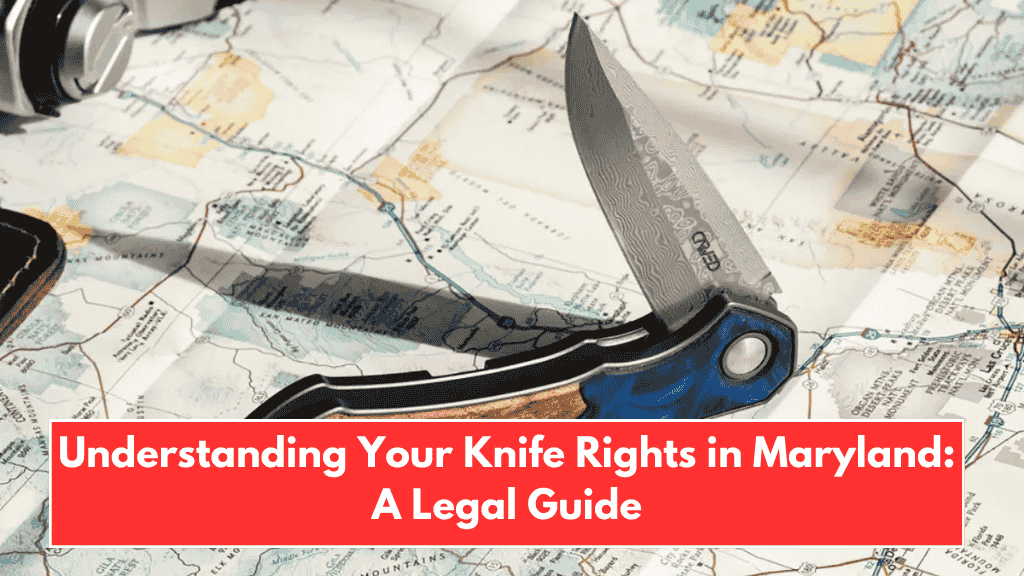In Maryland, there are clear laws that regulate the ownership, carrying, and use of knives. It is very important to understand these rules to avoid facing any legal trouble. In this article, we will explain which knives are legal and illegal, the rules around carrying knives openly or concealed, restricted areas, special exceptions for law enforcement and military, and the possible consequences if the law is broken.
Types of Knives Allowed and Prohibited in Maryland
Legal Knives
In Maryland, you are generally allowed to own and carry several types of knives, including:
Pocket knives
Utility knives
Folding knives
Hunting knives
These types of knives are widely accepted for everyday use, like outdoor activities, repair work, and personal tasks.
Illegal Knives
Certain knives are completely prohibited in Maryland, mainly because of their design and potential for misuse. These include:
Switchblade knives
Gravity knives (knives that open by the force of gravity)
Star knives (throwing stars)
Sandclubs (classified under dangerous weapons along with knives)
Owning or carrying these weapons can lead to serious legal consequences.
Carrying Knives: Open Carry vs Concealed Carry
Open Carry
In Maryland, it is generally allowed to openly carry knives that are not classified as “dangerous weapons,” and as long as you do not intend to use them to harm someone. However, local jurisdictions (like cities or counties) might have their own rules, so it’s always wise to check the local laws before carrying a knife in public.
Concealed Carry
Carrying a dangerous knife in a concealed manner is generally illegal in Maryland. If you hide a knife on your person and it is considered a “dangerous weapon,” you could face charges. However, carrying an ordinary pocket knife with a reasonable blade length is usually allowed, especially if you have no harmful intent.
Always remember that different cities may have their own rules about the size and type of knives you can carry concealed.
Locations Where Carrying Knives Is Restricted
Even if your knife is legal, you cannot carry it everywhere. Some areas strictly ban carrying knives, including:
Schools and educational institutions
Government buildings
Public transportation vehicles and stations
Private properties that have posted “no weapons” signs
Carrying a knife in these restricted areas can lead to fines or even arrest.
Exceptions for Law Enforcement and Military Personnel
Law enforcement officers and active-duty military members usually have special exemptions under Maryland’s knife laws. They can carry knives that civilians are not allowed to carry, and they are often permitted to have knives in restricted areas like government buildings. However, these exceptions apply strictly to official duties and are not blanket permissions for personal use.
Consequences of Violating Maryland Knife Laws
If you break Maryland’s knife laws, you could face serious consequences, including:
Fines
Imprisonment
A permanent criminal record
The penalties depend on the situation, such as the type of knife involved, whether you were carrying it concealed, and where the violation happened. Serious offenses, especially involving dangerous knives or intent to harm, can lead to harsher punishments.
Understanding Maryland’s knife laws is essential for staying safe and legal. While owning common knives like pocket knives and utility knives is generally allowed, knives such as switchblades and throwing stars are illegal. Carrying rules, both open and concealed, must be followed carefully, and extra caution is needed in restricted areas. Special exceptions are available for law enforcement and military members. Being well-informed about these rules can help you avoid legal problems and promote responsible knife ownership across Maryland.














